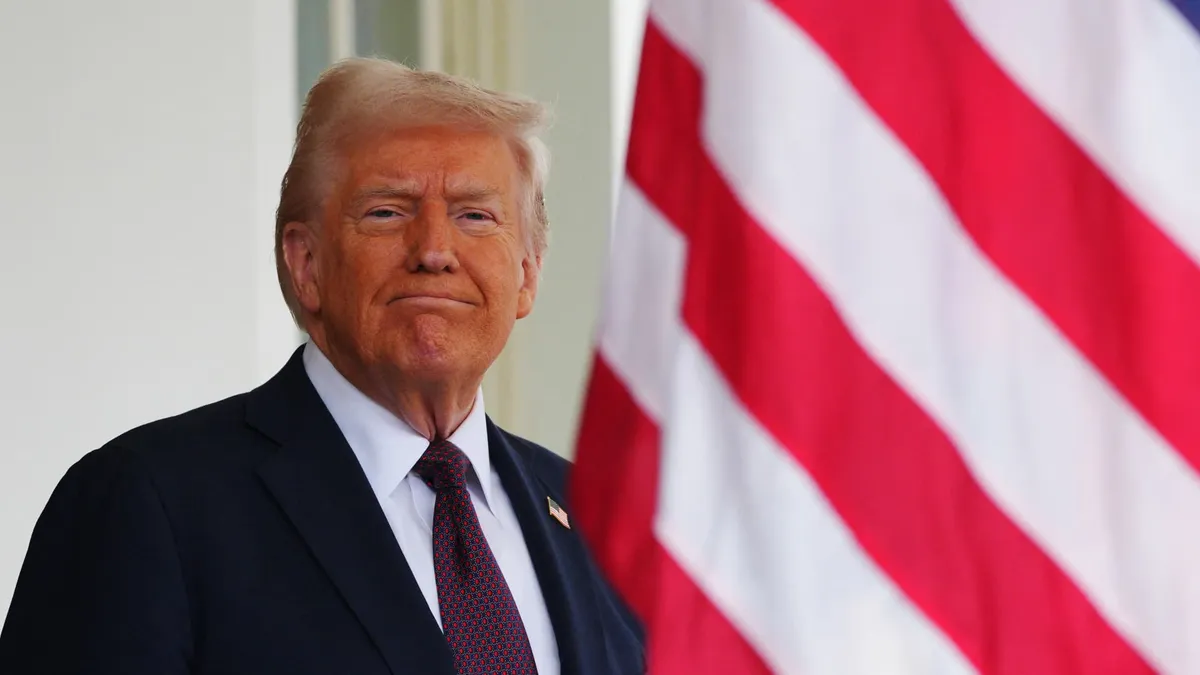
In a significant move that may reshape the linguistic landscape of the nation, President Donald Trump is set to sign an executive order aimed at making English the official language of the United States. This decision, confirmed by three White House officials to CNBC on Friday, would mark the first time in U.S. history that a national language is officially established.
The forthcoming executive order will also revoke a directive issued by former President Bill Clinton in August 2000. This earlier directive mandated that federal agencies, along with other recipients of federal funds, provide services for individuals with limited English proficiency. According to a fact sheet shared with CNBC, while Trump’s order allows federal agencies to continue offering documents and services in multiple languages, it encourages new Americans to adopt English, which is seen as a pathway to greater opportunities.
The Wall Street Journal first reported on this executive order earlier on Friday, although Trump’s schedule for the day does not currently indicate a specific time for signing. A White House source did not provide immediate information regarding when the signing is expected to take place.
As of now, more than half of U.S. states have taken steps to formally establish English as their official language, but the federal government has yet to follow suit. According to the U.S. Census Bureau, approximately one-in-five Americans, or nearly 68 million people, spoke a language other than English at home in 2019—an increase that has nearly tripled since 1980.
The White House fact sheet argues that establishing a national language will enhance the fabric of American society by promoting unity and civic engagement. It emphasizes that a common language can lead to greater efficiency in government operations. This initiative is part of Trump’s broader narrative, which has often included stoking concerns among voters regarding undocumented immigrants.
During his 2024 presidential campaign, Trump has increasingly highlighted the issues surrounding language as a reflection of what he describes as “immigration run amok.” In a speech at the Conservative Political Action Conference, he remarked, “We have languages coming into our country ... that nobody in this country has ever heard of,” underscoring his focus on the need for a unified national language.
This executive order, if enacted, is likely to provoke discussions about immigration, cultural identity, and the role of language in American society. As the nation watches closely, the implications of this order could have lasting effects on how language and immigration are perceived in the United States.